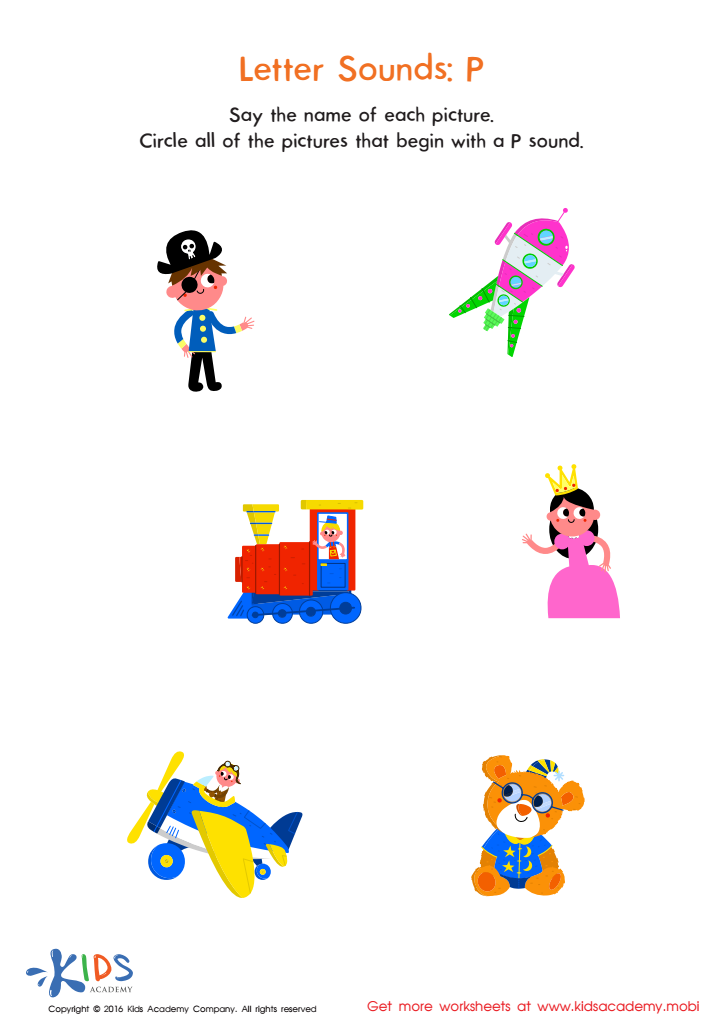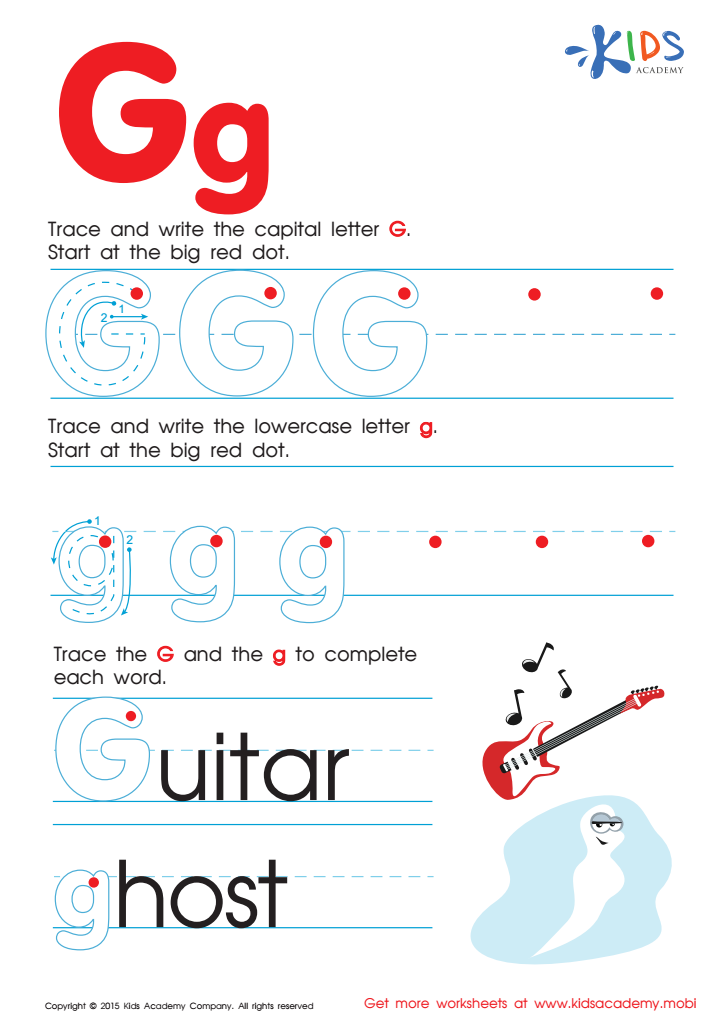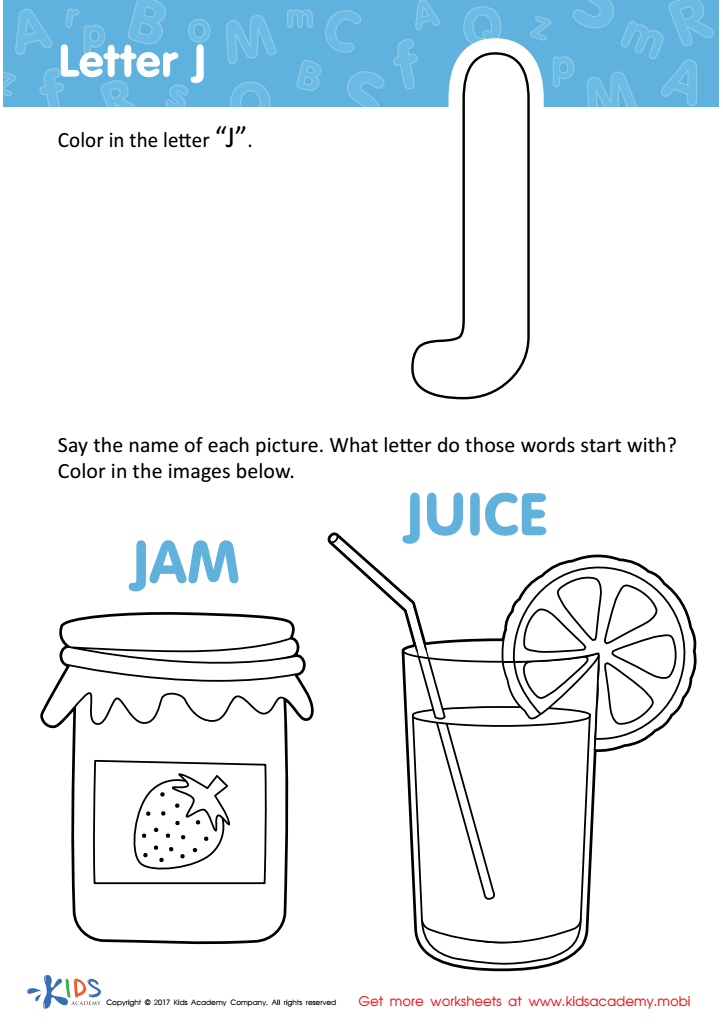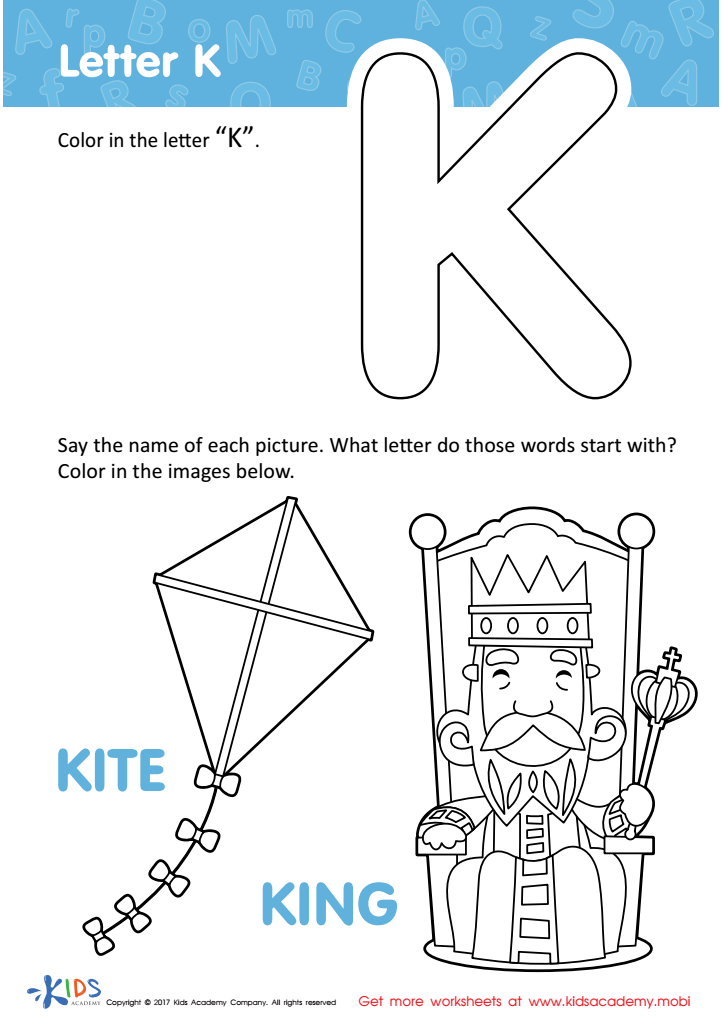Alphabetical order understanding Normal Alphabet Worksheets for Ages 5-6
4 filtered results
-
From - To
Discover our comprehensive "Alphabetical Order Understanding Normal Alphabet Worksheets" designed for children ages 5-6. These engaging worksheets help young learners grasp the concept of alphabetical order with fun and interactive exercises. Through various activities, kids will practice sorting words, recognizing letters, and developing organizational skills. Our worksheets are perfect for early education settings, reinforcing essential literacy foundations while making learning enjoyable. With clear instructions and colorful visuals, children will gain confidence in their alphabet skills. Explore our resources today and support your child's journey toward mastering alphabetical order in an engaging and effective way!


Letter P Sound Worksheet


Letter G Tracing Page


Letter J Coloring Sheet


Letter K Coloring Sheet
Understanding alphabetical order is crucial for children aged 5-6 as it lays the foundation for essential literacy skills. First, recognizing the sequence of letters helps youngsters in identifying and organizing words, which is vital for reading and spelling. When children learn the normal alphabet, they develop phonemic awareness, thereby improving their decoding abilities, which enhances their reading fluency.
Additionally, mastering alphabetical order fosters skills in categorization. For example, children learn to group items or information, aiding in projects and comprehension tasks. This organizational skill is essential not just in language arts but also in subjects like science and social studies, where they’ll encounter lists and bibliographies.
Moreover, understanding the normal alphabet order assists in navigating resources such as dictionaries, encyclopedias, and library catalogs. This practical application encourages independence in learning and research.
Lastly, recognizing the alphabet is part of cognitive development and boosting self-confidence as children master an important academic skill. Parents and teachers should emphasize this knowledge to support children's early learning, making reading and writing easier and more enjoyable as they progress through their educational journey. By caring about and contributing to this understanding, adults provide a solid foundation for future literacy achievement.

 Assign to My Students
Assign to My Students



















